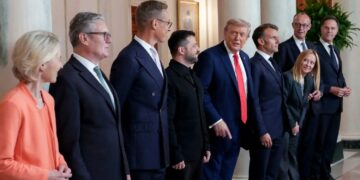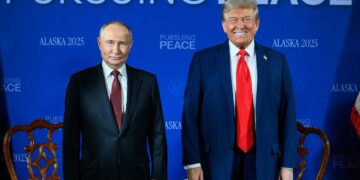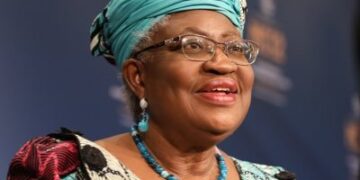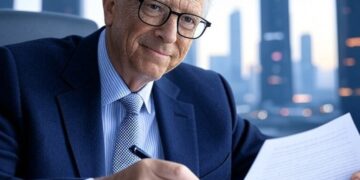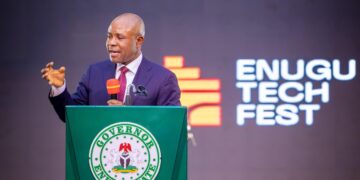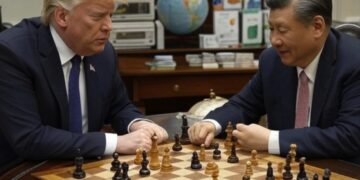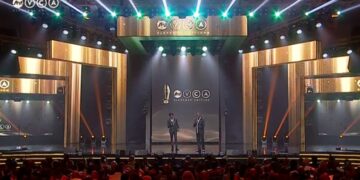On a balmy summer evening at MetLife Stadium in East Rutherford, New Jersey, Chelsea Football Club etched their name into football history, clinching the 2025 FIFA Club World Cup with a commanding 3-0 victory over Paris Saint-Germain (PSG). The July 13 final, attended by a roaring crowd of 81,118, marked the culmination of FIFA’s revamped 32-team tournament—a spectacle that blended world-class football with an unexpected dose of political theater, as U.S. President Donald Trump joined the Blues’ victory celebrations.
For Chelsea’s stakeholders—fans, sponsors, and investors—this triumph was more than a trophy; it was a testament to the club’s resurgence under manager Enzo Maresca and a defining moment in their global legacy. The match showcased Chelsea’s tactical brilliance, with Cole Palmer emerging as the undisputed star. The England midfielder delivered a masterclass, scoring twice in the first half and assisting João Pedro for the third goal, dismantling PSG’s defense with precision and flair. Despite PSG’s pedigree as European champions, their hopes crumbled when João Neves received a red card in the 85th minute, leaving them with ten players and no answer to Chelsea’s relentless press.
The victory, Chelsea’s first in the expanded Club World Cup format, netted the club over £90 million in prize money, a financial windfall that underscores the tournament’s growing commercial clout. FIFA President Gianni Infantino hailed the event as a “breakthrough moment for global club football,” with the tournament generating over $2 billion in revenue. For Chelsea, the financial and reputational boost solidifies their position as a powerhouse in an increasingly competitive global market.
Yet, the night’s narrative took an unexpected turn when President Trump, accompanied by First Lady Melania Trump and a retinue of high-profile figures including NFL legend Tom Brady and Attorney General Pam Bondi, descended from his skybox to present the trophy alongside Infantino. The moment sparked a mix of cheers and boos from the crowd, reflecting Trump’s polarizing presence. As Chelsea captain Reece James hoisted the gleaming trophy, Trump lingered on the podium, creating an iconic—if awkward—photo opportunity that went viral. “I knew he was going to be here, but I didn’t know he’d be on the stand when we lifted the trophy,” Palmer admitted post-match, his bemusement echoing the sentiments of players and fans alike.
Social media buzzed with reactions, some comparing Trump’s stage presence to John Terry’s infamous 2012 Champions League celebration, where the sidelined captain joined the trophy lift in full kit. Posts on social media platform X, captured the moment’s absurdity, with one user joking, “Only Trump could photobomb the Chelsea squad with the World Cup trophy and still look like the main character.” Another called it “iconic,” blending admiration for Chelsea’s win with the surreal sight of a U.S. president amid the confetti and fireworks.
The match itself was a showcase of Chelsea’s revitalized identity. Maresca’s high-pressing system overwhelmed PSG, with Palmer, João Pedro, and Malo Gusto exploiting the flanks. Goalkeeper Robert Sánchez claimed the Golden Glove for his standout saves, while Palmer’s Golden Ball award cemented his status as the tournament’s top player. The victory capped a remarkable season for Chelsea, who also won the UEFA Conference League and finished fourth in the Premier League, defying expectations against a PSG side chasing a historic quintuple.
For stakeholders, this win signals a bright future. The financial influx strengthens Chelsea’s ability to invest in talent and infrastructure, while the global exposure—amplified by the tournament’s 2.3 million attendees and star-studded halftime show featuring Nigeria’s Tems, Coldplay and Doja Cat—elevates the club’s brand. However, Trump’s presence, coinciding with the one-year anniversary of a 2024 assassination attempt, added a layer of complexity. His involvement, framed as a prelude to the 2026 World Cup hosted in the U.S., Canada, and Mexico, underscores the growing intersection of sports and politics—a dynamic stakeholders must navigate as football’s global stage expands.
As Chelsea basks in their world champion status, the image of Reece James lifting the trophy with Trump in the frame will remain a talking point. For the Blues’ faithful, it’s a quirky footnote to a monumental achievement—one that proves Chelsea’s mettle on the pitch and their ability to command attention, even when sharing the spotlight with an unlikely guest.





